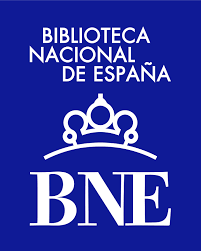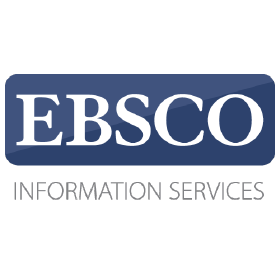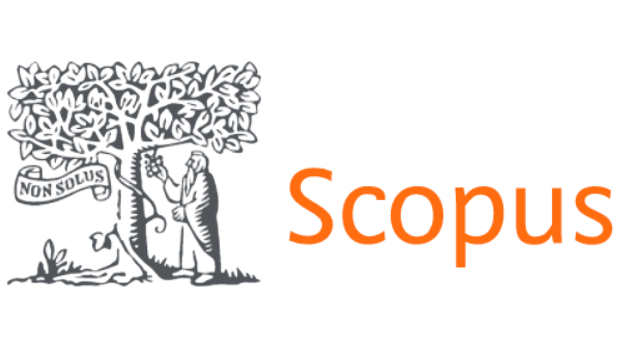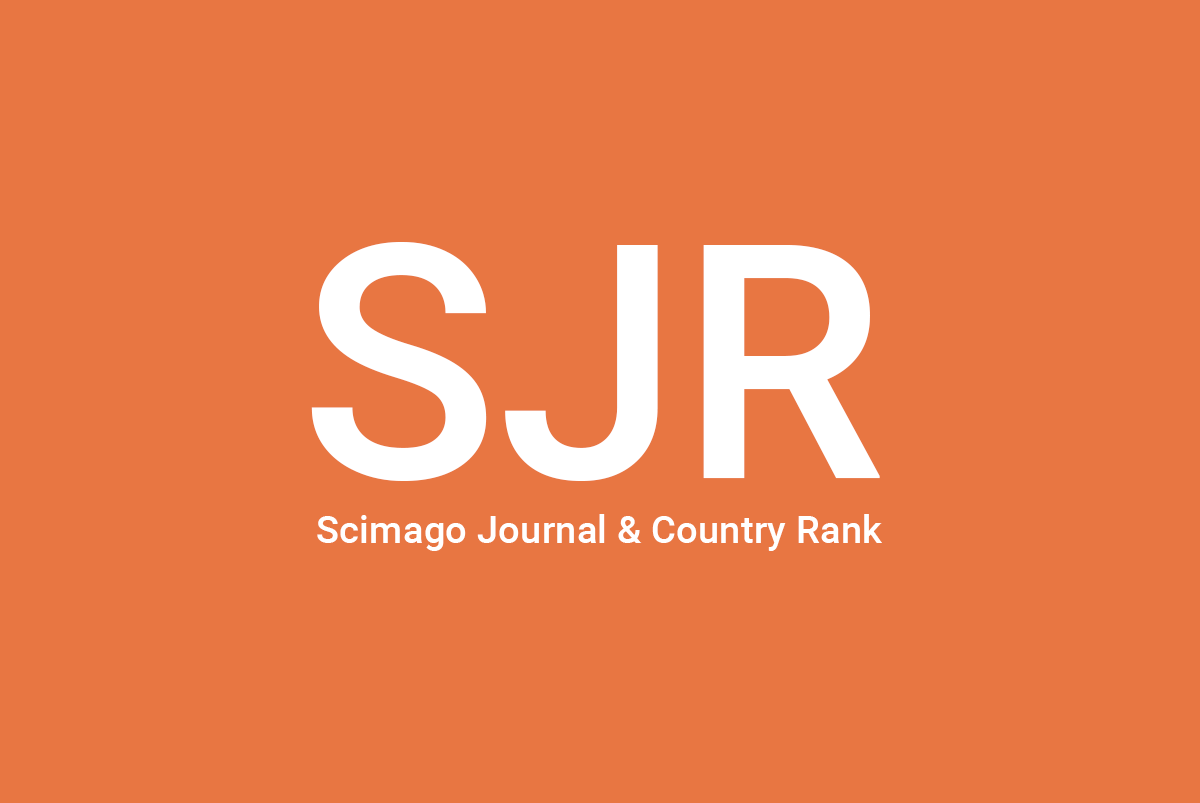About the Journal
Aims and Scope
Studia Hegeliana is the Academic Journal of the Spanish Society for Hegelian Studies, which is an academic society, founded in 1996, with the aim of promoting the study of Hegel's philosophy, its place within the context of German idealism, in the history of thought and its relationship with philosophical and cultural trends up to the present. This is the very purpose of the journal, also the subjects of the articles it publishes. Its target audience is mainly specialists in idealistic philosophy.
Published by the Publishing House of Málaga University (UMAEditorial).
The period of publication is annual. It publishes studies in Spanish, Portuguese, French, English, Italian and German.
Studia Hegeliana can be found in the following library catalogues: Biblioteca Nacional de España, Biblioteca de Castilla y León and Worldcat.
Indexed in: Dialnet, REDIB, ROAD, CIRC, Latindex´s directory, Latindex 2.0, Ulrich's Periodicals Directory, BASE (Bielefeld Academic Search Engine), Dulcinea, MIAR, Google Scholar, DRJI (Directory of Research Journal Indexing), ERIH PLUS, DOAJ (Directory of Open Access Journals), CORE, ÍnDICEs-CSIC, EBSCO, ProQuest y The Philosopher´´ s Index, SCOPUS.
Studia Hegeliana is evaluated by: CIRC, Latindex. Catálogo 2.0, IDR Dialnet 2023, SJR 2024.
Peer Review Process
1. Evaluation of originals
All sections are evaluated, i.e., the Board of Directors initially decides whether the article is appropriate for the journal. In the case of research articles (Studies), if it is not rejected, the secretary chooses reviewers who are experts in the subject matter of the article. The article then undergoes a more thorough evaluation process as follows:
2. Peer review
The review of each article will be carried out by an expert reviewer who will advise on its publication, without knowing in any case the identity of the author. They will always be subject matter experts, either national or international.
3. Blind evaluation
To ensure transparency, referees do not know the identity of the evaluated author. Thus, the articles sent to Studia Hegeliana are sent to the referees without the possibility of knowing the identity of the author and vice versa.
For this purpose, the article is blinded, eliminating any internal reference of the author to himself/herself. It is then sent to an expert referee, who in no case will be from the same institution as the author who submitted the article.
4. External referees
More than the 80% of the referees are external to the journal. The evaluators are always experts in the field, either PhD professors belonging to international research institutions, or researchers with extensive experience.
5. Acceptance or rejection after evaluation
After the peer review, the Board of Directors decides whether to accept the article without further review, to ask the author to make the modifications recommended by the reviewers, to ask the author for a thorough revision of the article, or to reject the article for publication.
For more information of this process, click here in order to go to submissions.
Publication agenda
Within a normal period of up to four months, the Editorial Board will notify authors of the acceptance or rejection of an article, together with any comments or suggestions made by the reviewers. Current average (not mandatory) decision time for an article: 60 days.
Authors of articles in the process of publication will receive proof of the text after being typographically composed, for immediate correction (maximum two weeks).
If, in an exceptional case, for reasons beyond the control of Studia Hegeliana the latter were forced to modify or delay the publication period of the selected articles to a later number, each author would be notified to confirm their approval or, if not, have the article available to present it to other magazines.
In case of error
The editors are not responsible for errors that may have been slipped due to not following these instructions. In case of encountering difficulties in deciphering, interpretation, format, etc., they will require the author via e-mail to send a new file, and if they do not receive it within a week, they will understand that they renounce the publicationtion of work.
Publication frecuency and statistics
Publication frecuency
Studia Hegeliana is an annual journal. It has published its issue in every December of the year since 2015 until 2021. From 2022 onwards, Studia Hegeliana has changed its periodicity to one volume per year published in June.
Open access policy
This journal provides immediate open access to its content, based on the principle that offering the public free access to research helps a greater global exchange of knowledge.
Studia Hegeliana follows the Open Access Journal policy and is integrated into the association of journals that participate in it through the Public Knowledge Project, a non-profit initiative of the Faculty of Education of the University of British Columbia. It aims to give the widest possible diffusion to all work of quality, published in any medium with limited diffusion. In this way, researchers and institutions that would otherwise be marginalized are integrated into an open universal scientific dialogue.
The journal is an open access Journal, and all its content is freely available without charges for the user or the institution. Users can read, download, copy, distribute, print, search or link the texts of the articles or use them for any other legal purpose without asking the publisher or the author for permission. Please, see copyright and access.
The journal does not have either article submission charges or article processing charges (APCs).
Ethical statement on publication and good practices
The editorial staff of the Studia Hegeliana journal is committed to the scientific community to guarantee the ethics and quality of the articles published. Our journal is based on the Code of Conduct and Good Practices (https://academic.oup.com/DocumentLibrary/journals/Code_of_conduct_for_journal_editors_1.pdf) defined by the Committee on Ethics in Publications (COPE) for editors of scientific journals. At the same time, it guarantees an adequate response to the needs of readers and authors, ensuring the quality of what is published, protecting and respecting the content of the articles as well as their integrity. The Editorial Committee undertakes to publish corrections, clarifications, retractions and apologies when necessary.
In compliance with these good practices, Studia Hegeliana has, as explained, a system for selecting articles that are reviewed by external evaluators -anonymous and by peers- with criteria based exclusively on the scientific relevance of the article, originality, clarity and relevance of the work presented. Studia Hegelana guarantees at all times the confidentiality of the evaluation process, the anonymity of the evaluators and the authors, the evaluated content, the report issued by the evaluators and any other communication issued by the editorial, advisory and scientific boards. In the same way, confidentiality will be maintained in the event of possible clarifications, claims or complaints that an author wishes to send to the journal committees or to the referees of the article.
Studia Hegeliana declares its commitment to the respect and integrity of the works already published. For this reason, plagiarism is strictly prohibited and texts that are identified as plagiarism or their content is fraudulent, will be removed from the journal if they have already been published or will not be published. The journals of the University of Malaga use the Crossref Similarity Check anti-plagiarism system. The journal will act in these cases as quickly as possible. By accepting the terms and agreements expressed by our journal, the authors must guarantee that the article and the materials associated with it are original or do not infringe copyrights. The authors also have to justify that, in the case of shared authorship, there was a full consensus of all the affected authors and that it has not been previously presented or published in another media.
Copyright and access
1. Copyright and licensing information are clearly described on the journal’s web site: all content published in Studia Hegeliana is open acces without limit. Since 2021 all content published are subject to the CC Attribution- NonCommercial-ShareAlike 4.0 International (CC-by-nc-sa) license. This license is from vol. 7, (2021), previously articles were pubished under license used by journal in that moment (license that appear in articles pdf's). The present license´s full text can be consulted at https://creativecommons.org/licenses/by-nc-sa/4.0/deed.en
2. Regarding copyright, please see Copyright notice (to do so, click here).
3. It is the responsibility of the authors to obtain the necessary permissions for the images that are subject to copyright.
4. This journal allows and encourages authors to publish papers on their personal websites or in institutional repositories, both before and after their publication in this journal, as long as they provide bibliographic information that accredits, if applicable, your posting on it. Inconsequence, the authors whose contributions are accepted for publication in this journal will retain the non-exclusive right to use their contributions for academic, research and educational purposes, including self-archiving or deposit in open access repositories of any kind.
5. In no case will anonymous papers be published.
6. Only evaluating the work based on intellectual content, without any bias towards ethnicity, gender, sexual orientation, religious believes origin ethnic, nationality or political ideology of the writer. For this reason, it is guarantees the anonymity of the writer during the selection process.
7. Authors, editors and publishers must accept the code of good practice.
8. Our OJS Platform embeds metadata and uses protocls to exchange them with databases, collectores, etc.
9. The electronic edition of this magazine is edited by the Editorial de la University of Malaga (UmaEditorial).
Antiplagiarism
Studia Hegeliana maintains an anti-plagiarism policy that ensures that all published works are unpublished, through the professional application of Ithenticate's Crossref Similarity Check services, to scan all proposals.
We use the service on all documents that have passed the editorial classification process and are subject to blind peer review.
The Journal reserves the decision to reject articles with an inappropriate percentage of similarity.
We also have specific plagiarism detection tools such as Unicheck, an open access platform that monitors originality and controls plagiarism.
Conflict of interest policies
The authors of an original manuscript, the editors of the journal Studia Hegeliana who will receive it, as well as the external reviewers of the journal are obliged to disclose any conflict of interest that might influence the manuscript, its review or its publication. The journal Studia hegeliana undertakes to find the most suitable reviewers in terms of compatibility if necessary.
In the hypothetical case of controversy, the case will be taken up, reflected upon and settled by the Editorial Board of Studia Hegeliana. To this end, they will take the necessary and reasonable measures to identify and prevent the publication of articles in which malpractice or misconduct has occurred. Under no circumstances will Studia Hegeliana encourage such academic misconduct, nor will it knowingly allow such misconduct to occur, and in the event that the editors of Studia Hegeliana become aware of misconduct in research submitted for review to the journal, or published, then the editors will address these allegations by such modification as is reasonable and necessary. In summary of this, to resolve potential disputes we follow COPE's guidelines.
Digital Preservation Policies
Studia Hegeliana has implemented the following digital file preservation policies: PKP Preservation Network (PN); LOCKSS (Lots of Copies Keep Stuff Safe); CLOCKSS (Controlled Lots of Copies Keep Stuff Safe).
DOIs of the articles also ensure the durability of access through Crossref. The content of the journal is also available in open access in different databases such as REBID and DIALNET, which guarantees the preservation of content by more than one database.
Policies on the use of Artificial Intelligence
Writing any part of an article using a generative AI/LLM tool, including the generation of the abstract or literature review, is not allowed.
The generation or reporting of results using a generative AI/LLM tool is not allowed, and statistical reporting in the text using a generative AI/LLM tool is not allowed.
Editing a part of the article using a generative AI/LLM tool to improve its language and readability would be allowed, as this mirrors the standard tools already employed to improve spelling and grammar, and uses existing material created by the author, rather than generating entirely new content, while the author(s) remain responsible for the original work.
Submission and publication of images created by artificial intelligence tools or large-scale generative models is not allowed.
Sponsors
- Sociedad Española de Estudios sobre Hegel
- UMA Editorial.
- Faculty of Philosophy, Salamanca University.
- Philosophy Department, University of Málaga, Spain.
Annual statistics
STATISTICS 2025
Articles received: 15
Articles accepted as Studies: 9 (60%)
Articles rejected as Studies: 6 (40%)
Articles published by international authors: 6 (66.66%)
Articles published by national authors: 3 (33.33%)
Articles that required revision: 9
Bibliographic reviews: 3
STATISTICS 2024
Articles received: 10
Articles accepted as Studies: 7 (70%)
Articles rejected as Studies: 3 (30%)
Articles published by international authors: 6 (83.33%)
Articles published by national authors: 1 (16.66%)
Articles requiring revision: 6
Bibliographic reviews: 1
STATISTICS 2023
Articles received: 13
Articles accepted as Studies: 5 (38.64%)
Articles rejected as Studies: 8 (61.53%)
Articles published by international authors: 3 (60%)
Articles published by national authors: 2 (40%)
Articles requiring revision: 4
Bibliographic reviews: 3

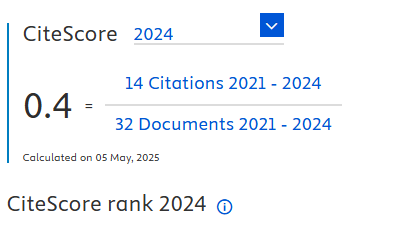
244.png)











